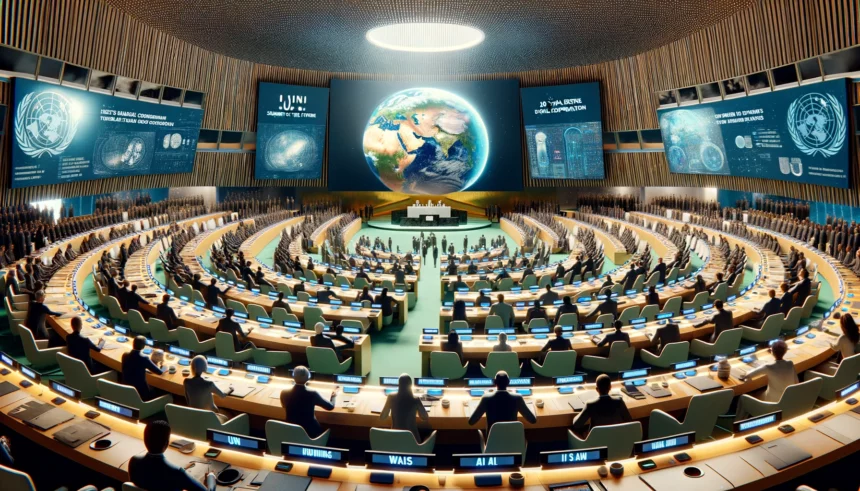At the United Nations’ upcoming Summit of the Future in New York, member states will be deciding on the direction for global digital cooperation in the years ahead. This marks a pivotal moment for shaping how the world engages with digital technology on a global scale.
Reflecting on WSIS: 20 Years of Insights
The International Telecommunication Union (ITU) and partner agencies are looking back at the 20-year legacy of the World Summit on the Information Society (WSIS). The goal is to draw valuable lessons from past successes and challenges in digital engagement.
Key Highlights from WSIS+20 Forum
This week, the WSIS+20 Forum High-Level Event in Geneva, Switzerland, is taking a closer look at what has been achieved since WSIS began and what hurdles still remain.
Key Takeaways:
- Adaptive Governance: The WSIS process has shown remarkable flexibility, with the Internet Governance Forum (IGF) becoming a central platform for global digital governance.
- Grassroots Development: The WSIS Forum focuses on grassroots digital development through initiatives like the Geneva Plan of Action.
Effective Inclusion: A Call for Updates
Switzerland, which is chairing the WSIS+20 Forum, is advocating for updates to the WSIS framework to better meet current and future needs.
Switzerland’s Stance
Ambassador Thomas Schneider, representing Switzerland, highlighted the effectiveness of WSIS’s inclusive approach. “WSIS and the UN Internet Governance Forum offer mechanisms for our digital future. We are proud to co-host WSIS, which is inclusive of and accountable to all voices,” he said.
Empowering Civil Society
The systemic development approach promoted by WSIS has empowered civil society groups, enabling them to drive sustainable and inclusive digital development.
Anriette Esterhuysen, from the Association for Progressive Communications, noted, “It enabled learning by integrating information and communication technology into education, food security, and media freedom, from the grassroots to implementation.”
Evolving Technology and Strengthening Values
As technology evolves, so do the socio-economic priorities. Emerging technologies like artificial intelligence (AI) have transformed the digital landscape since WSIS started.
Shifting Priorities
Robert Opp, Chief Digital Officer at the United Nations Development Programme (UNDP), emphasized the need to adapt WSIS action lines to new priorities such as AI, women’s roles in digital fields, and environmental sustainability.
Key Question:
- How do we work together to leave no one behind in the digital era?
Human Rights in the Digital Age
Human rights remain a fundamental aspect of digital governance. Volker Türk, High Commissioner at the UN Refugee Agency, stressed, “Human rights apply to the issues that we are discussing in the digital era.”
Ensuring Coherence and Collaboration
Various UN platforms bring together diverse stakeholders to foster cooperation. Multi-stakeholder and multi-lateral systems are seen as complementary and mutually reinforcing.
The Role of the Internet Governance Forum (IGF)
The IGF, based in Geneva, is setting the stage for the upcoming Global Digital Compact (GDC).
Participation Highlights:
- The 2023 IGF Meeting in Kyoto saw participation from 19,000 individuals, including 1,500 government representatives.
Moving Forward with the Global Digital Compact
Renata Dwan, from the UN Secretary-General’s Envoy on Technology, highlighted the importance of a people-centered, inclusive, and development-focused approach.
Draft Compact Goals:
- Uphold digital trust and safety.
- Address concentration of power and promote digital public goods.
Conclusion: Looking Ahead
The discussions and decisions made at this year’s Summit of the Future will significantly shape global digital cooperation. By reflecting on the lessons from WSIS and adapting to the evolving digital landscape, we can build a more inclusive, sustainable, and equitable digital future for all.
Let’s stay engaged and contribute to this crucial dialogue on the future of global digital cooperation.
















